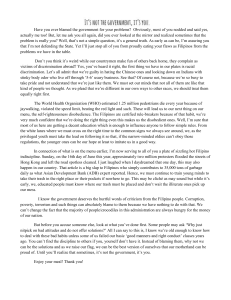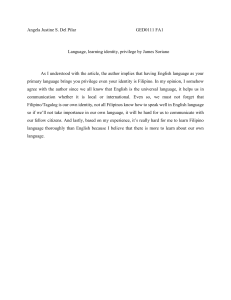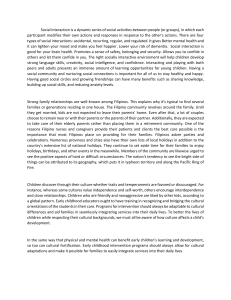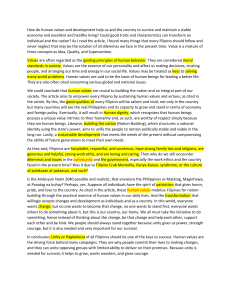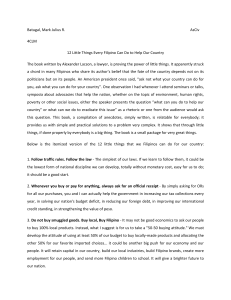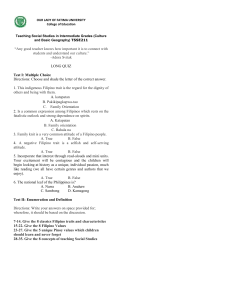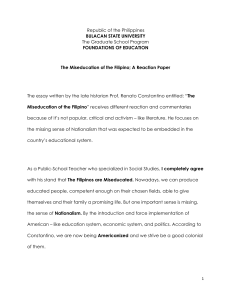APAM 453 Filipino American Experience
advertisement
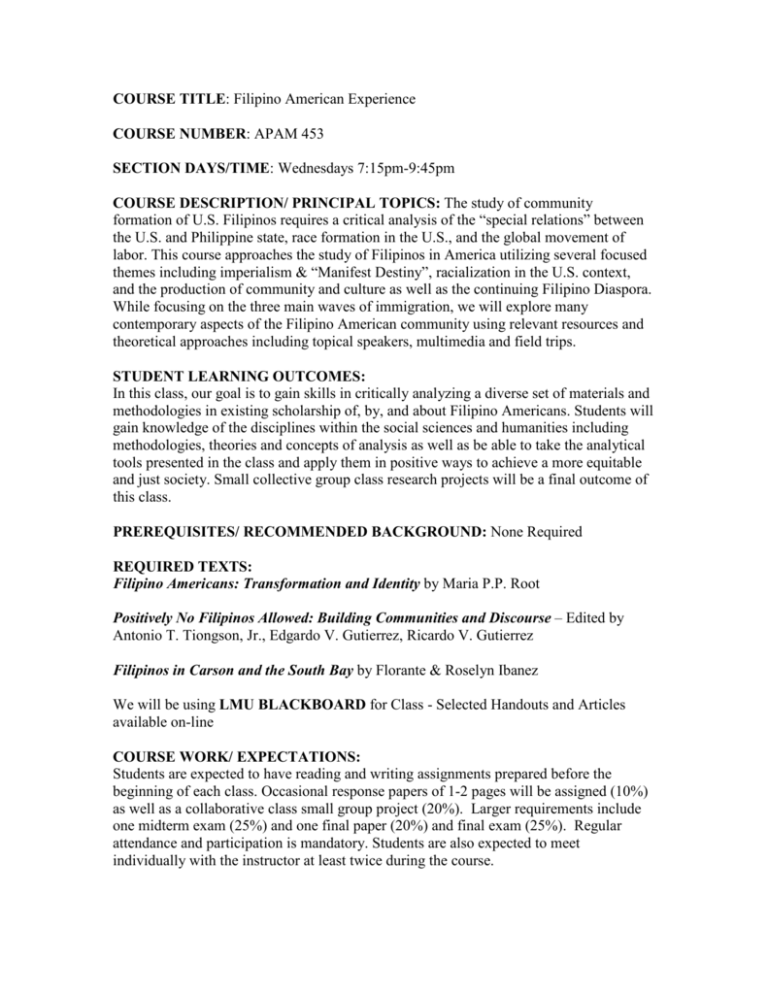
COURSE TITLE: Filipino American Experience COURSE NUMBER: APAM 453 SECTION DAYS/TIME: Wednesdays 7:15pm-9:45pm COURSE DESCRIPTION/ PRINCIPAL TOPICS: The study of community formation of U.S. Filipinos requires a critical analysis of the “special relations” between the U.S. and Philippine state, race formation in the U.S., and the global movement of labor. This course approaches the study of Filipinos in America utilizing several focused themes including imperialism & “Manifest Destiny”, racialization in the U.S. context, and the production of community and culture as well as the continuing Filipino Diaspora. While focusing on the three main waves of immigration, we will explore many contemporary aspects of the Filipino American community using relevant resources and theoretical approaches including topical speakers, multimedia and field trips. STUDENT LEARNING OUTCOMES: In this class, our goal is to gain skills in critically analyzing a diverse set of materials and methodologies in existing scholarship of, by, and about Filipino Americans. Students will gain knowledge of the disciplines within the social sciences and humanities including methodologies, theories and concepts of analysis as well as be able to take the analytical tools presented in the class and apply them in positive ways to achieve a more equitable and just society. Small collective group class research projects will be a final outcome of this class. PREREQUISITES/ RECOMMENDED BACKGROUND: None Required REQUIRED TEXTS: Filipino Americans: Transformation and Identity by Maria P.P. Root Positively No Filipinos Allowed: Building Communities and Discourse – Edited by Antonio T. Tiongson, Jr., Edgardo V. Gutierrez, Ricardo V. Gutierrez Filipinos in Carson and the South Bay by Florante & Roselyn Ibanez We will be using LMU BLACKBOARD for Class - Selected Handouts and Articles available on-line COURSE WORK/ EXPECTATIONS: Students are expected to have reading and writing assignments prepared before the beginning of each class. Occasional response papers of 1-2 pages will be assigned (10%) as well as a collaborative class small group project (20%). Larger requirements include one midterm exam (25%) and one final paper (20%) and final exam (25%). Regular attendance and participation is mandatory. Students are also expected to meet individually with the instructor at least twice during the course.

